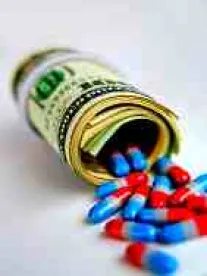The FDA recently issued a draft Guidance on how manufacturers can respond to unsolicited requests for information on off-label (unapproved or non-cleared) uses of their prescription drugs or medical devices. Although the draft Guidance may add some clarity and updates of past pronouncements on the subject to address current forms of communication, anyone hoping for a relaxation of the rules should not get too excited.
By way of background, new drugs and some medical devices must be approved, and most medical devices must be cleared, by the FDA before they can be lawfully marketed. The FDA's approval of the drug or device is limited to particular indications or uses that are stated on the label. Other (unapproved or non-cleared) uses of the drug or device are referred to as "off-label" uses and promotion of the drug or device for off-label uses "generally violates the law," as the draft Guidance states. It is not unlawful, however, for licensed medical professionals to prescribe drugs or devices for off-label uses and "FDA recognizes that ... off-label uses or treatment regimens may be important therapeutic options and may even constitute a medically recognized standard of care." FDA also recognizes that manufacturers are likely the best source of information about uses of their products, and that medical professionals or patients may ask manufacturers questions about off-label uses. The draft Guidance states FDA's current thinking on how manufacturers can respond to such requests without risking FDA enforcement action.
The draft Guidance distinguishes between unsolicited and solicited requests for information on off-label uses and states that manufacturers can only respond to unsolicited requests. Responding to a solicited request may be evidence of unlawful promotion. An unsolicited request is defined as one "initiated by persons or entities that are completely independent of the relevant firm." In contrast, a solicited request is one "prompted in any way by a manufacturer or its representatives" (emphasis added). The accompanying examples suggest that the FDA considers a request to be solicited if the manufacturer took some action that, even indirectly, prompted someone to request information on an off-label use.
The draft Guidance also distinguishes between unsolicited requests made privately and publicly. A private request is one made by mail, e-mail, telephone or otherwise so that it is not available to the public. A public request is one made in a manner that is available to the public, such as during a public conference or on social media. The FDA's position on responses to public requests is that they should be given, if at all, only when the request relates specifically to a product of the manufacturer that is named in the request. Further, in response to a public request, any public response should be limited to providing specific contact information for the manufacturer's medical or scientific department (not sales or marketing) and should not include off-label information. The response should disclose the responder's affiliation with the manufacturer and should not be promotional in nature or tone. If someone follows up by using the contact information to make a private request, the manufacturer should respond as FDA recommends for private unsolicited requests (discussed below).
For private requests, FDA makes several recommendations for a response. These are fairly clear and succinct and therefore are quoted or slightly paraphrased:
- Information distributed in response to an unsolicited request should be provided only to the individual making the request directly to the firm as a private, one-on-one communication.
- Information distributed in response to an unsolicited request should be tailored to answer only the specific question(s) asked. (If a broad question is asked, the manufacturer should seek to narrow it to determine exactly what information is being sought before responding).
- Information distributed in response to an unsolicited request should be truthful, non-misleading, accurate, and balanced.
- Information distributed in response to an unsolicited request should be scientific (not promotional) in nature.
- Responses to unsolicited requests for information should be generated by medical or scientific personnel independent from sales or marketing departments.
- Information distributed in response to an unsolicited request should be accompanied by specific information spelled out in the draft Guidance, including the complete FDA-authorized labeling for the product.
- A firm should maintain certain records related to the response identified in the draft Guidance.
As an example to elaborate on the third point, the draft Guidance states that "when conclusions of articles or texts that are disseminated have been specifically called into question by other articles or texts, a firm should disseminate representative publications that reach contrary or different conclusions regarding the use at issue."
In short, the FDA's recommendations allow a manufacturer to respond to unsolicited requests for off-label use information, likely in recognition of the manufacturer's First Amendment rights in response to past litigation, but in a manner likely to minimize any off-label uses.
The compete text of the draft Guidance may be found at http://1.usa.gov/UnsolReqs.
As always, it is important to remember that FDA Guidance documents (including drafts) are not binding on the FDA or industry, but rather represent FDA's current thinking on a topic.




 />i
/>i

